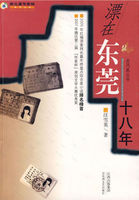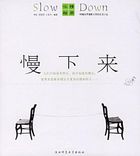THE year came round to Christmas-time, and I had been at home above two months. I had seen Agnes frequently. However loud the general voice might be in giving me encouragement, and however fervent the emotions and endeavours to which it roused me, I heard her lightest word of praise as I heard nothing else.
At least once a week, and sometimes oftener, I rode over there, and passed the evening. I usually rode back at night; for the old unhappy sense was always hovering about me now—most sorrowfully when I left her—and I was glad to be up and out, rather than wandering over the past in weary wakefulness or miserable dreams. I wore away the longest part of many wild sad nights, in those rides; reviving, as I went, the thoughts that had occupied me in my long absence.
Or, if I were to say rather that I listened to the echoes of those thoughts, I should better express the truth. They spoke to me from afar off. I had put them at a distance, and accepted my inevitable place. When I read to Agnes what I wrote; when I saw her listening face; moved her to smiles or tears; and heard her cordial voice so earnest on the shadowy events of that imaginative world in which I lived; I thought what a fate mine might have been—but only thought so, as I had thought after I was married to Dora, what I could have wished my wife to be.
My duty to Agnes, who loved me with a love, which, if I disquieted, I wronged most selfishly and poorly, and could never restore; my matured assurance that I, who had worked out my own destiny, and won what I had impetuously set my heart on, had no right to murmur, and must bear; comprised what I felt and what I had learned. But I loved her: and now it even became some consolation to me, vaguely to conceive a distant day when I might blamelessly avow it; when all this should be over; when I could say‘Agnes, so it was when I came home; and now I am old, and I never have loved since!’
She did not once show me any change in herself. What she always had been to me, she still was; wholly unaltered.
Between my aunt and me there had been something, in this connexion, since the night of my return, which I cannot call a restraint, or an avoidance of the subject, so much as an implied understanding that we thought of it together, but did not shape our thoughts into words. When, according to our old custom, we sat before the fire at night, we often fell into this train; as naturally, and as consciously to each other, as if we had unreservedly said so. But we preserved an unbroken silence. I believed that she had read, or partly read, my thoughts that night; and that she fully comprehended why I gave mine no more distinct expression.
This Christmas-time being come, and Agnes having reposed no new confidence in me, a doubt that had several times arisen in my mind—whether she could have that perception of the true state of my breast, which restrained her with the apprehension of giving me pain—began to oppress me heavily. If that were so, my sacrifice was nothing; my plainest obligation to her unfulfilled; and every poor action I had shrunk from, I was hourly doing. I resolved to set this right beyond all doubt;—if such a barrier were between us, to break it down at once with a determined hand.
It was—what lasting reason have I to remember it!—a cold, harsh, winter day. There had been snow, some hours before; and it lay, not deep, but hard-frozen on the ground. Out at sea, beyond my window, the wind blew ruggedly from the north. I had been thinking of it, sweeping over those mountain wastes of snow in Switzerland, then inaccessible to any human foot; and had been speculating which was the lonelier, those solitary regions, or a deserted ocean.
‘Riding today, Trot?’said my aunt, putting her head in at the door.
‘Yes,’said I,‘I am going over to Canterbury. It's a good day for a ride.’
‘I hope your horse may think so too,’said my aunt;‘but at present he is holding down his head and his ears, standing before the door there, as if he thought his stable preferable.’
My aunt, I may observe, allowed my horse on the forbidden ground, but had not at all relented towards the donkeys.
‘He will be fresh enough, presently!’said I.
‘The ride will do his master good, at all events,’observed my aunt, glancing at the papers on my table.‘Ah, child, you pass a good many hours here! I never thought, when I used to read books, what work it was to write them.’
‘It's work enough to read them, sometimes,’I returned.‘As to the writing, it has its own charms, aunt.’
‘Ah! I see!’said my aunt.‘Ambition, love of approbation, sympathy, and much more, I suppose? Well: go along with you!’
‘Do you know anything more,’said I, standing composedly before her—she had patted me on the shoulder, and sat down in my chair—‘of that attachment of Agnes?’
She looked up in my face a little while, before replying:
‘I think I do, Trot.’
‘Are you confirmed in your impression?’I inquired.
‘I think I am, Trot.’
She looked so steadfastly at me: with a kind of doubt, or pity, or suspense in her affection: that I summoned the stronger determination to show her a perfectly cheerful face.
‘And what is more, Trot—’said my aunt.
‘Yes!’
‘I think Agnes is going to be married.’
‘God bless her!’said I, cheerfully.
‘God bless her!’said my aunt,‘and her husband too!’
I echoed it, parted from my aunt, and went lightly downstairs, mounted, and rode away. There was greater reason than before to do what I had resolved to do.
How well I recollect the wintry ride! The frozen particles of ice, brushed from the blades of grass by the wind, and borne across my face; the hard clatter of the horse's hoofs, beating a tune upon the ground; the stiff-tilled soil; the snowdrift, lightly eddying in the chalk-pit as the breeze ruffled it; the smoking team with the waggon of old hay, stopping to breathe on the hill-top, and shaking their bells musically; the whitened slopes and sweeps of Down-land lying against the dark sky, as if they were drawn on a huge slate!
I found Agnes alone. The little girls had gone to their own homes now, and she was alone by the fire, reading. She put down her book on seeing me come in; and having welcomed me as usual, took her work-basket and sat in one of the old-fashioned windows.
I sat beside her on the window-seat, and we talked of what I was doing, and when it would be done, and of the progress I had made since my last visit. Agnes was very cheerful; and laughingly predicted that I should soon become too famous to be talked to, on such subjects.
‘So I make the most of the present time, you see,’said Agnes,‘and talk to you while I may.’
As I looked at her beautiful face, observant of her work, she raised her mild clear eyes, and saw that I was looking at her.
‘You are thoughtful today, Trotwood!’
‘Agnes, shall I tell you what about? I came to tell you.’
She put aside her work, as she was used to do when we were seriously discussing anything; and gave me her whole attention.
‘My dear Agnes, do you doubt my being true to you?’
‘No!’she answered, with a look of astonishment.
‘Do you doubt my being what I always have been to you?’
‘No!’she answered, as before.
‘Do you remember that I tried to tell you, when I came home, what a debt of gratitude I owed you, dearest Agnes, and how fervently I felt towards you?’
‘I remember it,’she said, gently,‘very well.’
‘You have a secret,’said I.‘Let me share it, Agnes.’
She cast down her eyes, and trembled.
‘I could hardly fail to know, even if I had not heard—but from other lips than yours, Agnes, which seems strange—that there is someone upon whom you have bestowed the treasure of your love. Do not shut me out of what concerns your happiness so nearly! If you can trust me, as you say you can, and as I know you may, let me be your friend, your brother, in this matter, of all others!’
With an appealing, almost a reproachful, glance, she rose from the window; and hurrying across the room as if without knowing where, put her hands before her face, and burst into such tears as smote me to the heart.
And yet they awakened something in me, bringing promise to my heart. Without my knowing why, these tears allied themselves with the quietly sad smile which was so fixed in my remembrance, and shook me more with hope than fear or sorrow.
‘Agnes! Sister! Dearest! What have I done?’
‘Let me go away, Trotwood. I am not well. I am not myself. I will speak to you by and by—another time. I will write to you. Don't speak to me now. Don't! don't!’
I sought to recollect what she had said, when I had spoken to her on that former night, of her affection needing no return. It seemed a very world that I must search through in a moment.‘Agnes, I cannot bear to see you so, and think that I have been the cause. My dearest girl, dearer to me than anything in life, if you are unhappy, let me share your unhappiness. If you are in need of help or counsel, let me try to give it to you. If you have indeed a burden on your heart, let me try to lighten it. For whom do I live now, Agnes, if it is not for you!’
‘Oh, spare me! I am not myself! Another time!’was all I could distinguish.
Was it a selfish error that was leading me away? Or, having once a clue to hope, was there something opening to me that I had not dared to think of?
‘I must say more. I cannot let you leave me so! For Heaven's sake, Agnes, let us not mistake each other after all these years, and all that has come and gone with them! I must speak plainly. If you have any lingering thought that I could envy the happiness you will confer; that I could not resign you to a dearer protector, of your own choosing; that I could not, from my removed place, be a contented witness of your joy; dismiss it, for I don't deserve it! I have not suffered quite in vain. You have not taught me quite in vain. There is no alloy of self in what I feel for you.’
She was quiet now. In a little time, she turned her pale face towards me, and said in a low voice, broken here and there, but very clear:
‘I owe it to your pure friendship for me, Trotwood—which, indeed, I do not doubt—to tell you, you are mistaken. I can do no more. If I have sometimes, in the course of years, wanted help and counsel, they have come to me. If I have sometimes been unhappy, the feeling has passed away. If I have ever had a burden on my heart, it has been lightened for me. If I have any secret, it is—no new one; and is—not what you suppose. I cannot reveal it, or divide it. It has long been mine, and must remain mine.’
‘Agnes! Stay! A moment!’
She was going away, but I detained her. I clasped my arm about her waist.‘In the course of years!’‘It is not a new one!’New thoughts and hopes were whirling through my mind, and all the colours of my life were changing.
‘Dearest Agnes! Whom I so respect and honour—whom I so devotedly love! When I came here today, I thought that nothing could have wrested this confession from me. I thought I could have kept it in my bosom all our lives, till we were old. But, Agnes, if I have indeed any new-born hope that I may ever call you something more than Sister, widely different from Sister!—’
Her tears fell fast; but they were not like those she had lately shed, and I saw my hope brighten in them.
‘Agnes! Ever my guide, and best support! If you had been more mindful of yourself, and less of me, when we grew up here together, I think my heedless fancy never would have wandered from you. But you were so much better than I, so necessary to me in every boyish hope and disappointment, that to have you to confide in, and rely upon in everything, became a second nature, supplanting for the time the first and greater one of loving you as I do!’
Still weeping, but not sadly—joyfully! And clasped in my arms as she had never been, as I had thought she never was to be!
‘When I loved Dora—fondly, Agnes, as you know—’
‘Yes!’she cried, earnestly.‘I am glad to know it!’
‘When I loved her—even then, my love would have been incomplete, without your sympathy. I had it, and it was perfected. And when I lost her, Agnes, what should I have been without you, still!’
Closer in my arms, nearer to my heart, her trembling hand upon my shoulder, her sweet eyes shining through her tears, on mine!
‘I went away, dear Agnes, loving you. I stayed away, loving you. I returned home, loving you!’
And now, I tried to tell her of the struggle I had had, and the conclusion I had come to. I tried to lay my mind before her, truly, and entirely. I tried to show her how I had hoped I had come into the better knowledge of myself and of her; how I had resigned myself to what that better knowledge brought; and how I had come there, even that day, in my fidelity to this. If she did so love me (I said) that she could take me for her husband, she could do so, on no deserving of mine, except upon the truth of my love for her, and the trouble in which it had ripened to be what it was; and hence it was that I revealed it. And O, Agnes, even out of thy true eyes, in that same time, the spirit of my child-wife looked upon me, saying it was well; and winning me, through thee, to tenderest recollections of the Blossom that had withered in its bloom!
‘I am so blest, Trotwood—my heart is so overcharged—but there is one thing I must say.’
‘Dearest, what?’
She laid her gentle hands upon my shoulders, and looked calmly in my face.
‘Do you know, yet, what it is?’
‘I am afraid to speculate on what it is. Tell me, my dear.’
‘I have loved you all my life!’
O, we were happy, we were happy! Our tears were not for the trials (hers so much the greater) through which we had come to be thus, but for the rapture of being thus, never to be divided more!
We walked, that winter evening, in the fields together; and the blessed calm within us seemed to be partaken by the frosty air. The early stars began to shine while we were lingering on, and looking up to them, we thanked our GOD for having guided us to this tranquillity.
We stood together in the same old-fashioned window at night, when the moon was shining; Agnes with her quiet eyes raised up to it; I following her glance. Long miles of road then opened out before my mind; and, toiling on, I saw a ragged way-worn boy, forsaken and neglected, who should come to call even the heart now beating against mine, his own.
It was nearly dinner-time next day when we appeared before my aunt. She was up in my study, Peggotty said: which it was her pride to keep in readiness and order for me. We found her, in her spectacles, sitting by the fire.
‘Goodness me!’said my aunt, peering through the dusk,‘who's this you're bringing home?’
‘Agnes,’said I.
As we had arranged to say nothing at first, my aunt was not a little discomfited. She darted a hopeful glance at me, when I said‘Agnes’; but seeing that I looked as usual, she took off her spectacles in despair, and rubbed her nose with them.
She greeted Agnes heartily, nevertheless; and we were soon in the lighted parlour downstairs, at dinner. My aunt put on her spectacles twice or thrice, to take another look at me, but as often took them off again, disappointed, and rubbed her nose with them. Much to the discomfiture of Mr. Dick, who knew this to be a bad symptom.
‘By the by, aunt,’said I, after dinner;‘I have been speaking to Agnes about what you told me.’
‘Then, Trot,’said my aunt, turning scarlet,‘you did wrong, and broke your promise.’
‘You are not angry, aunt, I trust? I am sure you won't be, when you learn that Agnes is not unhappy in any attachment.’
‘Stuff and nonsense!’said my aunt.
As my aunt appeared to be annoyed, I thought the best way was to cut her annoyance short. I took Agnes in my arm to the back of her chair, and we both leaned over her. My aunt, with one clap of her hands, and one look through her spectacles, immediately went into hysterics, for the first and only time in all my knowledge of her.
The hysterics called up Peggotty. The moment my aunt was restored, she flew at Peggotty, and calling her a silly old creature, hugged her with all her might. After that, she hugged Mr. Dick (who was highly honoured, but a good deal surprised); and after that, told them why. Then, we were all happy together.
I could not discover whether my aunt, in her last short conversation with me, had fallen on a pious fraud, or had really mistaken the state of my mind. It was quite enough, she said, that she had told me Agnes was going to be married; and that I now knew better than anyone how true it was.
We were married within a fortnight. Traddles and Sophy, and Doctor and Mrs. Strong, were the only guests at our quiet wedding. We left them full of joy; and drove away together. Clasped in my embrace, I held the source of every worthy aspiration I had ever had; the centre of myself, the circle of my life, my own, my wife; my love of whom was founded on a rock!
‘Dearest husband!’said Agnes.‘Now that I may call you by that name, I have one thing more to tell you.’
‘Let me hear it, love.’
‘It grows out of the night when Dora died. She sent you for me.’
‘She did.’
‘She told me that she left me something. Can you think what it was?’
I believed I could. I drew the wife who had so long loved me, closer to my side.
‘She told me that she made a last request to me, and left me a last charge.’
‘And it was—’
‘That only I would occupy this vacant place.’
And Agnes laid her head upon my breast, and wept; and I wept with her, though we were so happy.















